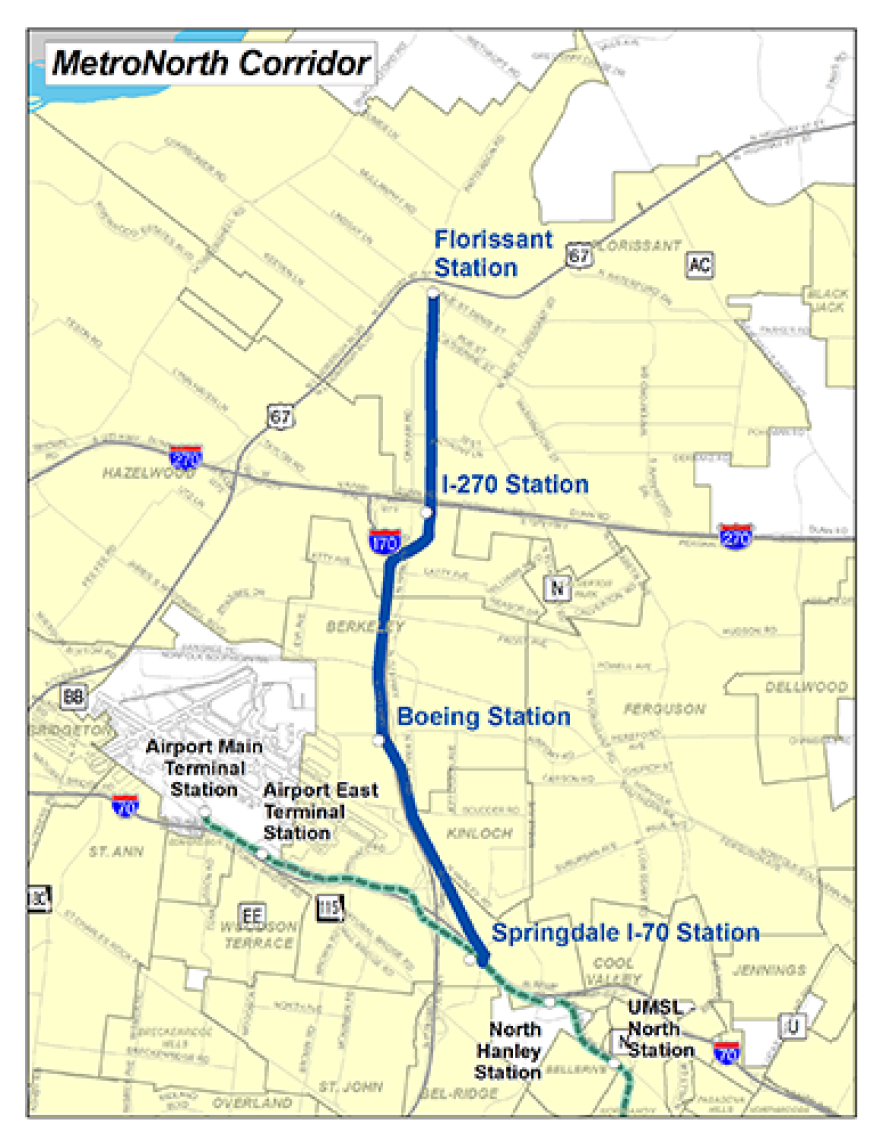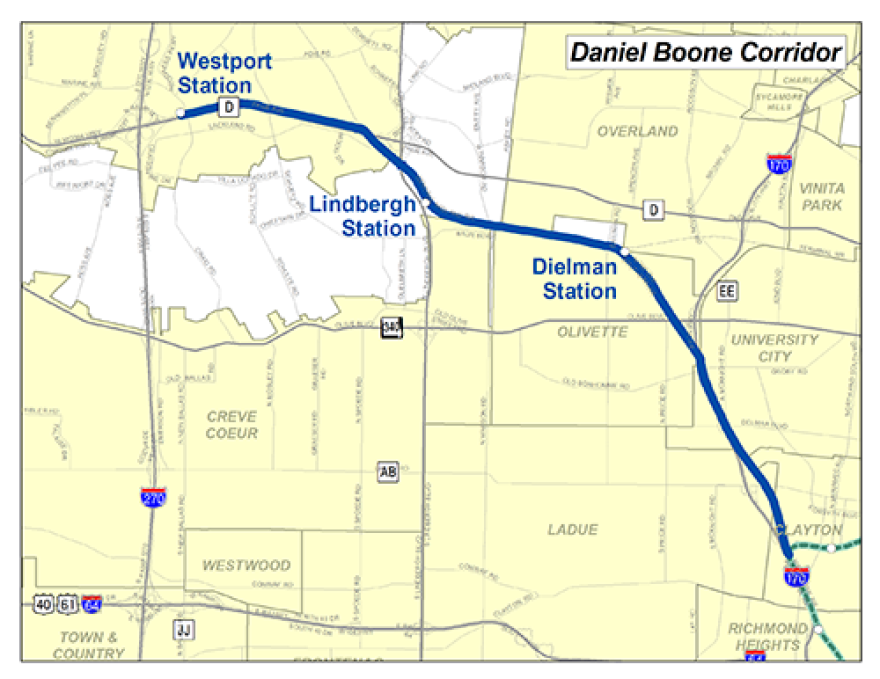Updated 4:42 p.m. with more detail -Efforts to expand mass transit in the St. Louis region gained momentum Thursday with the release of a funding study and a call for public input on future transit lines. But what project or projects to fund remains undecided. What's more, once a project has been identified, the odds of successfully funding it remains unclear due to reduced availability of federal funding and lack of state support for public transportation.
St. Louis public transportation advocacy group Citizens for Modern Transit released a finance study Thursday outlining the region’s options for finding funding. Meanwhile, St. Louis County is seeking public input on where MetroLink should expand in the county.
One option would bring light rail north from Hanley Station to Florissant; another would take it west from Clayton to Westport. The third option would add a line south from Shrewsbury past Lindbergh.
St. Louis County Executive Steve Stenger said his office will use that survey to help decide where to focus a planned feasibility study.
The first priority for expanding mass transit needs to be a regional decision about what project to put forward, said Beth Osborne at the St. Louis Regional Chamber Thursday. Osborne is a senior policy advisor for a nonprofit research group, Transportation for America, and author of the finance study.
“A lot of the funding opportunities arise from the project itself. If it’s a small project, you’re looking at totally different funding options than if it’s a mega project. If you’re looking at rail, you have opportunities for value capture that you don’t have on the bus side to the same extent,” Osborne said.

Osborne, who previously worked for the U.S. Department of Transportation, also stressed the need for St. Louis to seek many different funding sources.
“The feds are not the most reliable partner these days. The feds can be a partner, but you have to go in knowing they’re not going to be the end-all-be-all,” Osborne said during her presentation.
But at the same time, federal and state support remains an important element, Osborne said during an interview afterward.
“It’s going to be a lot harder (without state and federal support), especially for a big, transformative project,” Osborne said. “When you look at the biggest, most impressive, transformative projects across the country, I really struggle to point to one where the state was a complete absent partner.”
Is expansion feasible without state support?
Both St. Louis Mayor Francis Slay and Citizens for

Modern Transit Chair Rose Windmiller pointed to the lack of state support for public transportation during a panel discussion.
“The stool is now only a two-legged stool unless we have the state" in addition to local and federal government, Windmiller said. “So I just encourage everyone (to) think about ways to make that argument with your elected officials.”
“We’re going to have to look to ourselves on a regional basis to craft a way forward… We will need the states involved, we will need both (Missouri and Illinois) involved, we will need the federal government involved, but I think we’re going to have to look at a collaborative leadership approach that’s driven by regional leadership,” said Joe Reagan, president of the St. Louis Regional Chamber.
“We can’t rely on the state,” said Slay in an interview. “We’ve seen historically that they don’t seem to be very motivated or enough legislators don’t seem to be coming around the same idea, which is why I brought it up. I wanted to make sure we brought up the elephant in the room here.”

Asked whether St. Louis could expand mass transit without the state, Slay said, “That is a good question… If we do, there’s going to be have to be some very innovative ideas on how we get some additional funding. But in the end, we need to find a way.”
Osborne said other cities are funding mass transit with private investment and philanthropy as well as a variety of taxes.
“We’re seeing all kinds of different tax mechanisms including value-capture. Transit, particularly rail transit is so popular it causes a boost in property values that you can then capture and put back in the system,” Osborne said.
Why expand mass transit?
In her study. Osborne outlined five reasons cities should build mass transit: to reduce household expenses, connect to jobs, to make good use of development, to attract talent and business and to respond to people now driving less. She said the region should decide which reason it cares most about and keep that reason in mind while planning its project.
During the panel discussion, Orvin Kimbrough of the United Way of Greater St. Louis said the priority should be to make St. Louis economically competitive.
“We ought to move forward thinking about what’s going to give folks access to education, what’s going to give folks access to training, and where are the jobs,” Kimbrough said.
Stenger agreed, saying a project should target large employment centers.
“When we were … putting together the different routes to study in St. Louis County, I was thinking about Boeing and north park clusters there. I was thinking about Westport,” Stenger said.
Reagan described mass transit as both a moral and economic imperative.
“Having a community that is completely connected is the socially and morally right thing to do. Having a community that is connected within our region and within the rest of the world is also the economically competitive thing to do.”
Follow Camille Phillips on Twitter: @cmpcamille.



